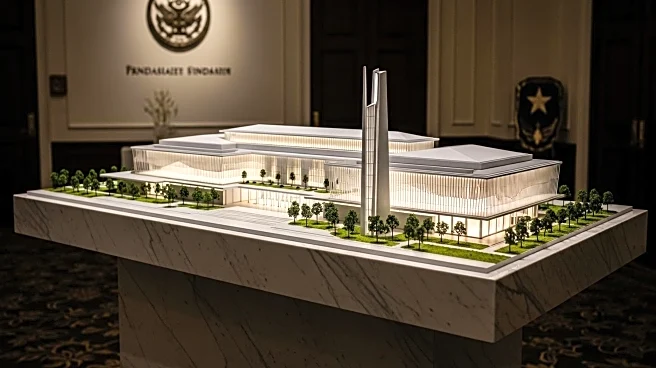What's Happening?
Former President Joe Biden has announced plans to establish his presidential library in Delaware, with fundraising efforts set to commence soon. The library aims to serve as a hub for leadership, service, and civic engagement, encapsulating Biden's legacy. The project is expected to be a significant financial undertaking, with costs potentially reaching several hundred million dollars. Biden's team has formed a 13-member board of governance, including notable figures such as former Secretary of State Antony Blinken and former Delaware Governor Jack Markell, to oversee the project. The library is envisioned as an immersive museum that will inspire future generations through history and civic leadership.
Why It's Important?
The establishment of a presidential library is a critical component of preserving and promoting a former president's legacy. For Biden, the library represents an opportunity to highlight his contributions to American politics and society. The project also holds potential economic benefits for Delaware, potentially attracting visitors and boosting local tourism. However, the fundraising efforts may face challenges, as some donors have expressed reluctance due to dissatisfaction with Biden's presidency and concerns about political backlash. The success of the fundraising campaign will be crucial in determining the scale and scope of the library.
What's Next?
Biden's team will begin reaching out to potential donors and exploring partnerships with local institutions in Delaware. The exact location of the library has yet to be determined, but discussions with the University of Delaware and other local entities are ongoing. As the fundraising campaign progresses, the team will need to address donor concerns and build a compelling case for support. The project will also require careful planning and coordination to ensure it meets its goals of fostering civic engagement and leadership.
Beyond the Headlines
The development of Biden's presidential library raises broader questions about the role of such institutions in shaping public memory and historical narratives. Presidential libraries serve as both educational resources and symbols of political legacy, influencing how future generations perceive past administrations. The project also highlights the challenges of balancing personal legacy with public service, as former presidents navigate their post-office roles and responsibilities.











